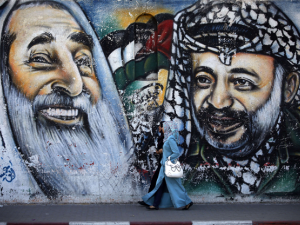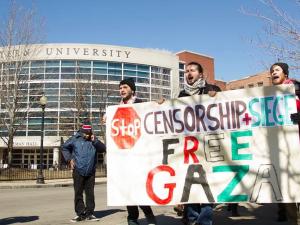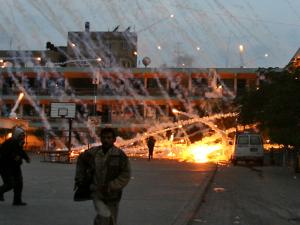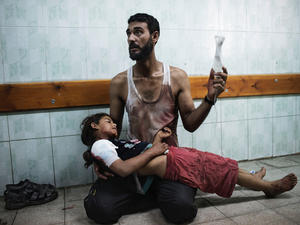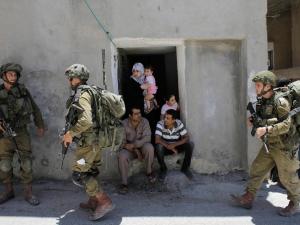Special Focus
Every month, IPS presents an event or theme related to the history of Palestine by highlighting a selection of relevant JPS articles. Free online access to these articles will be available for a limited period of time.
Palestinian Women – Shared Struggle, Diverse Experiences How does one write about women and their concerns without reducing them to so-called “women’s issues”? Are the struggles of Palestinian women under occupation or in refugee camps all that different from Palestinian men? Is a mother’s concern for her children a “women’s cause” distinguished in its sentiment and action from paternal concern? Is gender all that important, after all? The Journal of Palestine Studies has long addressed these and similar questions regarding the lived experience of Palestinian
Special Focus: Jerusalem Trump’s recognition of Jerusalem as Israeli capital this past Wednesday has caused a fury of opposition around the world. As protests of his decision continue, this month’s Special Focus offers eight Journal of Palestine Studies articles* that, together, shed light on the status of Jerusalem and on the likely consequences of Trump’s decision. In Walid Khalidi’s “The Ownership of the U.S. Embassy Site in Jerusalem,” the doyen of Palestinian historians investigates the history of the “Allenby Barracks” site that Israel has proposed as a
The news of Hamas’ decision to dissolve its administrative committee in the Gaza Strip, which it established in March, 2017, has once again reignited Palestinian hopes about the prospect of reconciliation between the Islamic movement and the Palestinian Authority in the West Bank. According to Hamas, the seven-member committee was established to fulfill needs in the Gaza Strip that were not met by the Palestinian Authority’s unity government as led by Prime Minister Rami Hamdallah. However, the Palestinian Authority long maintained that Hamas’ committee
Remembering Mahmoud Darwish It is difficult to overstate the legacy of Mahmoud Darwish, Palestine’s iconic poet, whose passing on 9 August 2008 has left behind a literary treasure. His was a voice that touched every Palestinian, and with it, Darwish delivered the Palestinian experience to a global audience. His poems have been translated into more than 20 languages, and continue to ring true for many Palestinians who long to return home. Indeed, exile was the central thread of Darwish’s poetic journey. And, while exile is often regarded as a political reality,
Jerusalem: Why the Violence Never Ends The ongoing escalation in Jerusalem has resulted once again in Israel changing the status quo in its favor. On Friday, July 14, a deadly shooting in the Old City that ended at the Haram al-Sharif left three Palestinians and two Israeli policemen dead. Israel imposed an unprecedented complete closure on the holy site for two days. The security services searched the al-Aqsa Mosque, the Dome of the Rock, offices, libraries, and other buildings in the compound with their characteristic callous disregard for sanctity or property
June marks the anniversary of the 1967 War. While the Nakba – or “catastrophe” – of the 1948 War, with the expulsion of 700,000 Palestinians from their homeland, stands as the defining moment of modern Palestinian history, the 1967 War was yet another key turning point that would prefigure the subsequent decades of conflict and negotiations between Israel and the Palestinians. In six days of war, Israel routed Egyptian, Syrian and Jordanian forces and bestrode the region as the unparalleled power, stamping its flag over the rest of historic Palestine (East
Special Focus: Israeli Prison, Palestinian Lives Over 800,000 Palestinians have been detained or imprisoned by Israel since 1948, according to a joint survey by the Palestinian Central Bureau of Statistics, Commission of Detainees and Ex-Detainees Affairs, and the Palestinian Prisoners Club. Published to mark Prisoners Day on April 17, the survey highlights one of the many practices Israel has deployed to displace Palestine’s indigenous population. Indeed, the deployment of discrete legal systems — one for Israel’s own citizens granting preferential treatment to
Special Focus: Palestine, Congress, and the White House President Donald Trump is preparing for his first official meeting with Israeli Prime Minister Benjamin Netanyahu on February 15, 2017. After months of speculation, the upcoming meeting promises to be revealing as political leaders, analysts, and commentators attempt to discern the new administration’s position on the Israeli-Palestinian conflict. Will Trump adopt a radically different approach than his predecessors–one even more biased in favor of Israel? During his campaign, President Trump vociferously
Palestine at the UN The adoption of United Nations (UN) Security Council Resolution 2334 on December 23, 2016 has elicited furious reactions from Israel and its allies in the U.S. Congress and media. Resolution 2334’s adoption came as a result of a U.S. abstention on the vote for the resolution, which “Reaffirms that the establishment by Israel of settlements in the Palestinian territory occupied since 1967, including East Jerusalem, has no legal validity and constitutes a flagrant violation under international law and a major obstacle to the achievement of the
It's Christmas in Palestine The tradition of Christmas in Palestine is a deeply rooted one. Bethlehem, the birthplace of Jesus Christ at the Church of Nativity, has always been an integral part of Palestinian identity and heritage, and is home to some of the earliest Christian communities on earth. Palestinian Christians have harmoniously stood together with their Muslim fellow citizens on the frontlines of preserving culture and safeguarding religious holy sites in the face of the challenges to Palestinian identity. Examples of this unity abound, whether it is
Balfour Declaration at 99 Years November 2nd marked 99 years since Arthur Balfour, British Foreign Secretary, sent a letter on behalf of the government to Zionist leader Lord Lionel Walter Rothschild assuring him that “His Majesty's Government view with favour the establishment in Palestine of a national home for the Jewish people.” This letter, known as the Balfour Declaration, revealed British double-dealings during wartime with an eye to strategic and nationalist concerns, including an effort to avert the influx of Eastern European Jewry into the UK. For
The Second Intifada, Then and Now The end of September marked 16 years since the outbreak of the Second Intifada, also known as al-Aqsa Intifada. The uprising was triggered by the visit to Haram al-Sharif of former Israeli cabinet minister and Likud leader Ariel Sharon, in an attempt to mobilize his political base. Contravening the long-standing status quo arrangements at the sanctuary, the gesture was a widely held to be a deep provocation to the Palestinians. Escorted by hundreds of Israeli riot police, including a helicopter, on Thursday 28 September 2000,
Sabra and Shatila: A Haunting Microcosm of Continuing Systemic Violence It’s been thirty four years since the 16 th of September 1982, when over 1,300 Palestinian civilians were massacred at Israel’s command by the Lebanese Christian Phalange militia at the Sabra and Shatila refugee camps, south of the capital city Beirut. The untold horrors of the massacre have since become a national Palestinian emblem of collective memory, commemorated year after year across historic Palestine and the diaspora. However, while most commemorations simply celebrate or mourn an
Zionist Settler Colonialism When in the late nineteenth century Zionism arose as a political force calling for the colonization of Palestine and the “gathering of all Jews,” little attention was paid to the fact that Palestine was already populated. Indeed, the Basel Program adopted at the First Zionist Congress, which launched political Zionism in 1897, made no mention of a Palestinian native population when it spelled out the movement's objective: "the establishment of a publicly and legally secured home in Palestine for the Jewish people.” Moreover, in the
A man sits on the ruins of his house, hours after it was demolished by Israeli forces, in the unrecognized Bedouin village of Wadi Al Na’am in the Negev, May 2014. Wadi Al-Na’am is the largest unrecognized village in Israel, home to 13,000 Palestinians; most of whom were displaced from elsewhere in Israel. (Keren Manor/Activestills) Palestinian Bedouins On June 9th, 2016, Israeli bulldozers accompanied by a squad of police officers stormed the Palestinian Bedouin village of al-Araqeeb in the Negev desert in southern Israel. For the residents, it was a familiar
Palestinian students at British universities celebrating the wedding of one of their members, Izz aI-Din al-Shawwa, London, 1928. Seated left to right, first row, are Khulusi al-Khairi from Ramleh (Public Administration, London School of Economics); unidentified woman; Izz aI-Din al-Shawwa from Gaza (Agriculture, Cambridge University); the bride; Wasfi Anabtawi from Nablus (Geography, Cambridge University); Mrs. W. Anabtawi. Second row: Wasif Kamal from Nablus (Law, London University); Muhammad Hadid and Taha Abd al-Baqi (both Iraqi colleagues); Anis al-Bibi from
Palestinians in Ramallah protest high cost of living and the Paris Protocol regulating trade with Israel. (Maan News Agency) Political Economy of Palestine A recent Financial Times profile of a budding Palestinian brewery noted the difficulties the three Sayej brothers of Birzeit confronted when they attempted to launch Palestine’s second beer after the much- lauded Taybeh put Palestinian brews on the proverbial map. “The Palestinians do not control their own borders, and transport is expensive because of the logistical challenges involved in clearing Israeli
Zionist Ideology and Propaganda The following introduction originally appeared as an essay on our blog Palestine Square , and is being reposted here in slightly amended form. * * * Zionism’s material and cultural conquest is a manifestation of the axiom long voiced by its partisans: the Arabs may have rights on the land but only Jews have rights to the land. Every movement needs its propaganda and Zionism has been the colonial master of marketing. Certainly the French in Algeria and the British in India never came close to crafting the agitprop that early
Ottoman Palestine The following is excerpted from Part One of Before Their Diaspora: A Photographic History of the Palestinians, 1876-1948 , by Walid Khalidi. (A family in Ramallah, north of Jerusalem.) * * * From 1516 until the end of World War I, the whole region of western Asia was part of the Ottoman Empire. The majestic superstructure of the walls encircling the Old City of Jerusalem, built by the Ottoman sultan Suleiman the Magnificent (1520-66), attests to Jerusalems’s standing in Ottoman eyes. Equally revealing is the endowment made in 1552 by Khasseki
Arab Jerusalem The following remarks were presented by the Institute for Palestine Studies’ General Secretary Walid Khalidi at Georgetown University’s Center for Contemporary Arab Studies’ symposium on “Arab Jerusalem.” Khalidi’s description of Israeli exclusivist ambitions over Jerusalem were remarkably prescient and his words are even timelier today. Below is an abridged version of the presentation and the full remarks may be read here . . . . Today, the basic concept that seems to inform all discussion on Jerusalem is that of the “unity of Jerusalem.” In
Zionist Terrorism, Then and Now On January 3, 2016, Israeli prosecutors filed a murder indictment against 21-year-old Amiram Ben-Uliel for reportedly firebombing the Dawabsha family home in the West Bank village of Duma, which killed 18-month-old Ali and his parents Saad and Riham; five-year-old brother Ahmed remains hospitalized in Israel. The July attack revived international attention on Jewish terrorism in Israel; but while this case was lethal and extraordinary, other acts of violence against Palestinians are routine. In October 2014, for instance, the
Palestinian Citizens of Israel There’s an old folktale told by Palestinians. In 1948, during the shock and panic of the war, a Palestinian mother grabs a pillow thinking it’s her child. She flees and has not yet returned. The child is left behind and stays on the land. “We are the child,” Palestinians from the Galilee, Haifa, Acre, Jaffa, Lydda, the Negev, Nazareth, and Umm al-Fahm, and on and on, proclaim. For the Palestinians of Israel, the 1947-49 war – the Nakba (Catastrophe) – transformed the community from a national majority into a marginalized minority
Egypt and the Palestinians Writing in the Journal of Palestine Studies , Sabri Jiryis remarked on Egyptian President Anwar Sadat’s journey to Jerusalem: “For half a century since the meeting between the Emir Faisal, son of Sherif Hussein of Mecca, and the Zionist leader Chaim Weizmann in June, 1918, no Arab leader had publicly met with any Zionist or Israel official. Here, now, was the president of the largest Arab country visiting Israel . . . it is clear that the Middle East in particular and the Arab world in general have entered a new era when developments
Israel and the U.S. Congress The present battle by the American Israel Public Affairs Committee (AIPAC) to scuttle the 14 July Iran nuclear agreement may prove to mark a pivotal moment in the history of the organization and its status as vanguard of the so-called “Israel lobby.” AIPAC is fully mobilized against the American president, and its success or defeat may very well determine its future clout on Capitol Hill. The organization has reportedly poured over $20 million into television advertising [1] against the Joint Comprehensive Plan of Acton and dedicated
Gaza & Operation Protective Edge – One Year Later Three Israelis boys trekking home in the West Bank are reported missing and presumed dead by Israeli security forces and the prime minister. A recording of a distressed telephone call made by one of the boys reveals sounds of gun shots followed by the pained cries of the three boys. Their blood is found in the car of the suspected Palestinians behind the kidnapping and murder. An 18-day hunt for the boys’ bodies is officially described as a rescue mission as the political leadership and IDF general staff
Southern Lebanon, An Arena of Contestation “Pity the Nation,” British journalist Robert Fisk titled his account of the 1975-1990 Lebanese Civil War. Colleague and fellow Englishman David Hirst chose “Beware of Small States” for his own survey of the nation he defined as the “battlefield of the Middle East.” The unfamiliar reader glancing at such titles may reasonably surmise that the nation’s contemporary history has been dominated by conflict and devastation. Even though the Lebanese Civil War officially ended more than two decades ago, the small nation,
The Naksa , 49 Years Later June marks the anniversary of the 1967 War. While the Nakba – or “catastrophe” – of the 1948 War, with the expulsion of 700,000 Palestinians from their homeland, stands as the defining moment of modern Palestinian history, the 1967 War was yet another key turning point that would prefigure the subsequent decades of conflict and negotiations between Israel and the Palestinians. In six days of war, Israel routed Egyptian, Syrian and Jordanian forces and bestrode the region as the unparalleled power, stamping its flag over the rest of
The Nakba - In The Words of Palestinians There are so many ways to write about the Nakba – the Palestinian Catastrophe of 1948. One could start with Plan Dalet, the Yishuv’s (Jewish community in Palestine) master plan to expel Palestinian Arabs from within and outside the territory allotted to the Jewish state in the United Nation’s 1947 Partition Plan and its realization in the expulsion of 750,000 Palestinians from their homes by Zionist paramilitaries. [1] The massacre at Deir Yassin where the Revisionist Zionist Irgun and Lehi forces killed 107 Palestinian
UNRWA and Palestinian Refugees - 66 Years Later The November 1947 United Nations General Assembly partition resolution apportioning fifty-five percent of historic Palestine to a Jewish state was all but an invitation for the Yishuv’s (the pre-Israel Jewish community) paramilitary forces to expel and confiscate the lands of the mainly Palestinian peasantry residing within that half of the country. [1] Palestinians constituted two-thirds of the population in the whole of the country and were nearly on par with the Jewish population within the fifty-five percent. Of
Settler Violence in Palestine Perhaps nothing better symbolizes the Palestinian commitment to hold fast to the land than the olive tree. Its ancient roots and strong foundation a metaphor for the Palestinians’ unbroken presence and resilience. And for Israeli settlers guided by the fervent belief that Palestinians are squatters on land ordained by God for the Jewish people, the olive tree is a prime target. [1] According to a report on settler violence by The Palestine Center, “the period of the olive harvest annually brings a peak in violent settler activity.” [
Martyrdom in the Context of the Palestinian National Struggle In January 1965, Ahmad Musa, a Fedayeen fighter with the Fatah faction, retreated back into Jordan after a sabotage raid on an Israeli water tunnel near the Palestinian village of Eilaboun in the occupied Galilee. Israeli forces seized Eilaboun in October 1948, expelled its residents (eventually allowed to return after the intervention of the Archbishop of Acre), and rounded up 14 of its young men and shot them three by three in a massacre still commemorated by the village. [1] Musa met his own fate at
The Arab-Israeli Conflict's Effect on Academia In June 1990, after much institutional delay, 150 faculty members of the University of Idaho, including the new president, signed a resolution calling on Israel to reopen Palestinian universities shut down during the Intifada . The resolution “expresses the faculty members’ deep concern on the issues of academic freedom, civil liberties, and access to educational opportunities for the Palestinian people residing in Israeli-occupied territories.” Declaring education to be a “basic human right,” the resolution may have
Palestinian Prisoners For Palestinians, the experience of being a prisoner is as common to life under occupation as, say, land confiscations and checkpoints. Since 1967, 40% of the adult male population in the West Bank and Gaza Strip, or roughly 800,000 people, have been the victim of some form of detention by Israel. As of 1 May 2014, the Addameer Prisoner Support and Human Rights Association , a Palestinian NGO dedicated to prisoners’ rights, reports 5271 Palestinian political prisoners and administrative detainees in Israeli custody in 25 prisons, detention,
Operation Cast Lead Gaza is on the verge of becoming the first territory to be intentionally reduced to a state of abject destitution, with the knowledge, acquiescence, and - some would say - encouragement of the international community. -UNRWA Commissioner-General Karen AbuZayd January 2009 This is Israel's finest hour. It was a time of trial in which our society showed itself to be ready and willing, with the ability to cope and draw on the enormous strength within it. Israeli society rose impressively to the occasion, and emerges from this trial strengthened
Gaza Under Attack At present (8 August 2014), over 1,800 Palestinians have been killed and more than 10,000 have been injured since the Israeli military assault of the Gaza Strip began Tuesday, July 8th. Many of those dead are women and children; the youngest victim was 18-month-old Mohammed Melkiye, who was killed alongside his 27-year-old mother by an Israeli airstrike. As Israel continues its third war against the people of Gaza since 2008, the Institute for Palestine Studies remains committed to accurately documenting and recording the conflict and its
Collective Punishment Due to the recent raids, arrests, and artillery attacks occurring in both the occupied West Bank and Gaza by Israeli forces in response to the kidnapping of three teenage Israeli settlers, the Institute is offering four articles* from our Journal of Palestine Studies pertaining to collective punishment and Israeli policy. *Articles that were only made available as part of our monthly Special Focus have since been removed and may be purchased at our co-publisher's website, the University of California Press. Removed articles will


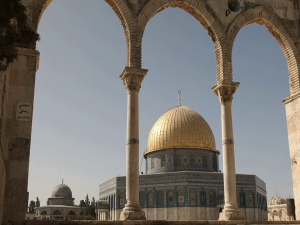
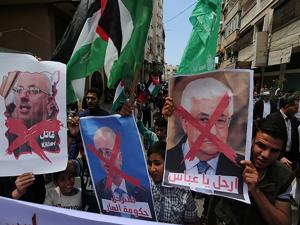
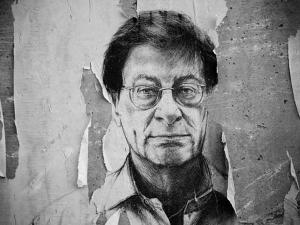
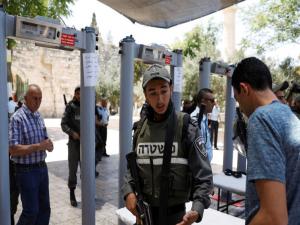
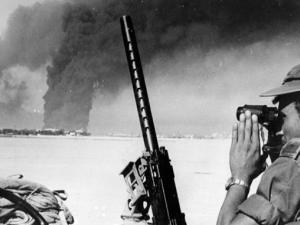
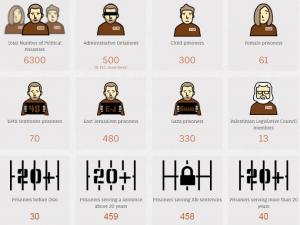
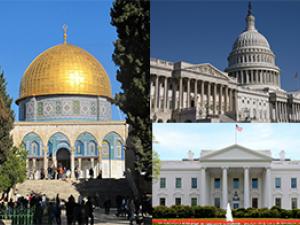
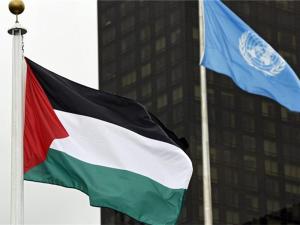
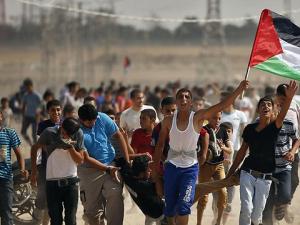
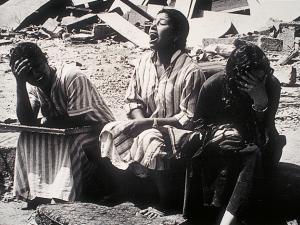
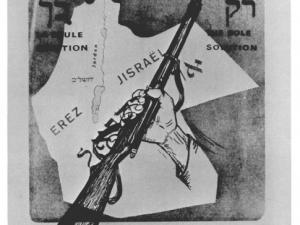
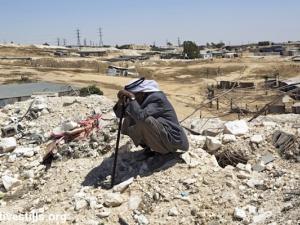
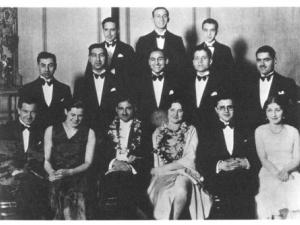
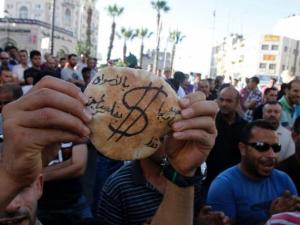
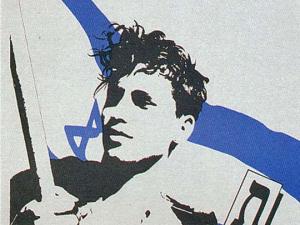
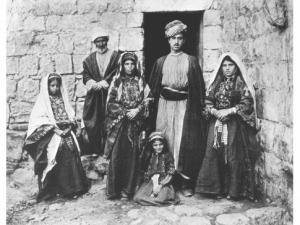
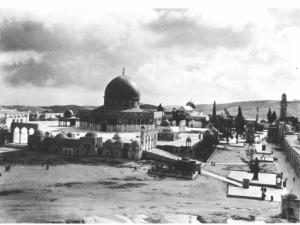
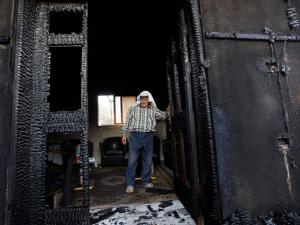
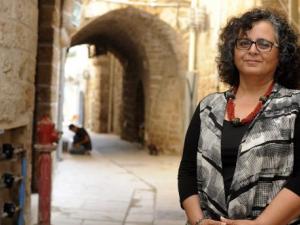
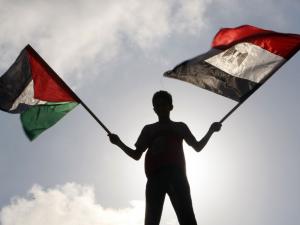
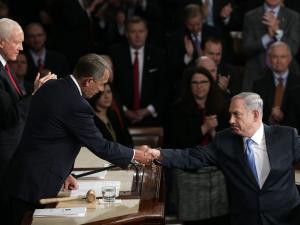
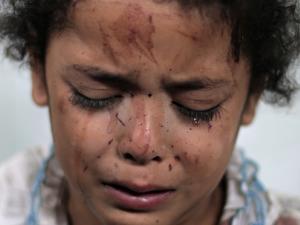

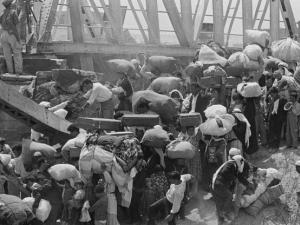
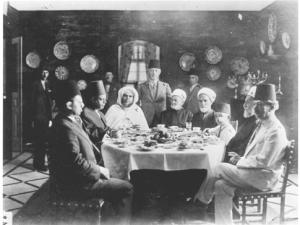
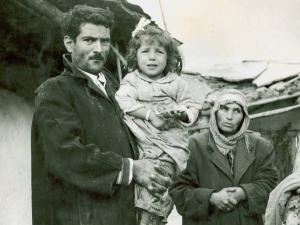
![“Gas the Arabs! JDL [Jewish Defense League]” spray-painted on the wall of a Palestinian school near Shuhada Street. Baruch Goldstein was a member of the JDL. (Activestills.org) “Gas the Arabs! JDL [Jewish Defense League]” spray-painted on the wall of a Palestinian school near Shuhada Street. Baruch Goldstein was a member of the JDL. (Activestills.org)](https://digitalprojects.palestine-studies.org/sites/default/files/styles/300x220/public/0030-035.jpg?itok=R-TKp-wY)
